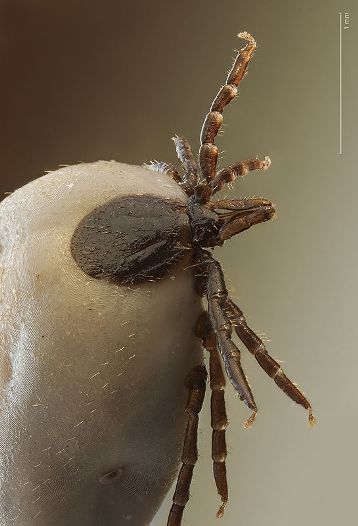Difference between revisions of "Category:Hard Ticks - UK"
Jump to navigation
Jump to search
| Line 27: | Line 27: | ||
===[[Dermacentor spp.]]=== | ===[[Dermacentor spp.]]=== | ||
| − | ===Rhipicephalus spp.=== | + | ===[[Rhipicephalus spp.]]=== |
| − | |||
| − | |||
| − | |||
| − | |||
| − | |||
| − | |||
| − | |||
| − | |||
[[Category:Ticks]] | [[Category:Ticks]] | ||
[[Category:To_Do_-_NickJ]] | [[Category:To_Do_-_NickJ]] | ||
[[Category:To_Do_-_Review]] | [[Category:To_Do_-_Review]] | ||
Revision as of 11:24, 14 July 2010
Hard Ticks - UK
The important tick species in the UK are all hard ticks as the environment does not suit the survival of soft ticks. They are distinguishable by differences in the morphology of the various important genera.
Ixodes spp.
Haemaphysalis spp.
Dermacentor spp.
Rhipicephalus spp.
Pages in category "Hard Ticks - UK"
The following 4 pages are in this category, out of 4 total.
